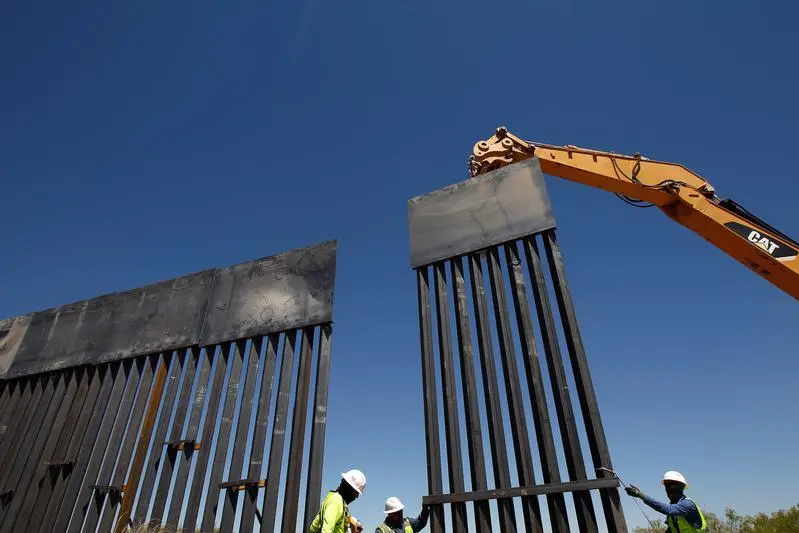PHOTO
Private sector capital is poised to play a greater role in funding future infrastructure projects in the Middle East as regional governments continue to pursue fiscal consolidation, results from a PwC Middle East study show.
Eighty percent of the respondents to PwC Middle East’s 2018 Middle East Capital Projects and Infrastructure Survey said they believe that “private sector capital will play a bigger role in the sector in the longer term through Public-Private Partnerships (PPPs) or fully private-sector projects”.
The study, conducted between December 2017 and January 2018, surveyed project owners, developers, contractors, external advisors and financiers.
It said that almost half of those surveyed (49 percent) expect an increase in capital expenditure over the next 12 months, which is a more positive result than when the survey was last held in 2016, when only 21 percent thought spending would increase.
Some 16.7 percent of all respondents said they expect capital spending to increase by 25 percent or more, but industry bosses displayed much more confidence, with 29 percent of top-tier management teams forecasting a 25 percent-plus capital spending boost.
In a press release accompanying the report’s publication, Maarten Wolfs, an infrastructure and government specialist in PwC Middle East’s deals division, said:
“Governments across the region continue to face challenges and pressure to perform and extract the highest value from projects as possible. What this tells us is that the industry needs to evolve. This may be done through the entry of new competitors, new technologies or changes to regulation to facilitate the delivery of capex programmes.”
However, PwC’s report added that continued fiscal consolidation by governments across the region to adjust to low oil prices means “pressure on funding” will remain intense.
“Seventy four percent of respondents (who commission projects) are likely to increase spending; however, they feel that funding and liquidity restrictions may have a negative impact on their projects,” the study said.
It noted that contractors ranked availability of funding as their second-biggest external challenge in 2018, after delayed payments by clients.
Fiscal consolidation efforts undertaken by Gulf countries to adjust to low oil prices have placed more emphasis on expenditure reduction by governments than revenue generation, according to a December 2017 International Monetary Fund (IMF) report.
Moreover, in order to attract private sector capital, the [infrastructure] sector needs to tackle its historic problems with poor budgeting and risk management and also improve collaboration with suppliers, PwC’s report said.
Although the number of respondents reporting project delays of more than six months dropped by 13 percentage points, still more than one-third (34 percent) said projects were delayed for more than half a year, and a further 38 percent reported delays between 1-6 months. Another 10 percent of respondents said they had no visibility over project schedules.
The number of respondents reporting projects that were over budget by more than 10 percent also increased marginally compared to the 2016 survey. Some 30 percent said projects had run over budget by between 10-50 percent and 2 percent reported projects that were over budget by more than 50 percent.
Reasons cited by the respondents range from poorly defined scope and inadequate design to inconsistent procurement practices to over-optimism on budgets and contingency reserves.
The study said PPP-style competitive tendering underpinned with long term fixed pricing “needs to become more prevalent before governments start to control spiralling costs and manage delivery risk”.
Forty-nine percent of the respondents said they expected a mix of private and government capital to fund infrastructure projects over the next year.
Majority of respondents also agreed that PPPs would allow governments to tap the “greater experience available in the private sector” with “a higher likelihood of delivering capital projects on time and on budget.”
“PPPs will not be the solution to all the challenges the sector faces. However, if appropriate projects which are suitable for long term private financing (incorporating both capex and long term opex) are carved out of traditional budgets, fiscal relief will be achieved,” it added.
And some of the barriers to attracting private capital may be on their way out, according to the study.
“Among developers, the most frequently cited internal challenges were risk management, governance, and organisational capability, indicating that at boardroom level, the historical tolerance for poor budgeting, poor procurement practices and forecasting may be at an end,” it said.
However, it also cautioned that “inefficiencies in planning and public investment and shortage of key capabilities in the public sector” pose challenges to private sector involvement.
The study also put the spotlight on the growing emphasis on building in-house project management capabilities and investing in technology to increase efficiency.
It pointed out that where project management is fully outsourced to consultants on about 80-90 percent of projects, there is a growing consensus among clients to reverse this trend, with 46 percent of respondents saying “a fully in-house project oversight team was the most effective way to deliver projects”.
While welcoming the interest shown by respondents in investing in technology to increase efficiency, the study flagged it as “a minority concern in an industry that lags far behind others in its tech spending.”
Further reading:
• 10 year visa: More expats will invest in freehold homes
• Mideast contractors under pressure to deliver more for less
• New budget in Kuwait prioritises infrastructure spending
• Dubai realty set for rebound: House prices right at the bottom
• Drop in house rents softens VAT impact in UAE
(Writing by Syed Ameen Kader; Editing by Anoop Menon and Michael Fahy)
(anoop.menon@thomsonreuters.com)
Our Standards: The Thomson Reuters Trust Principles
Disclaimer: This article is provided for informational purposes only. The content does not provide tax, legal or investment advice or opinion regarding the suitability, value or profitability of any particular security, portfolio or investment strategy. Read our full disclaimer policy here.
For more data, analytics, tools and news on projects in the Middle East visit the Thomson Reuters Projects portal
© ZAWYA 2018





















